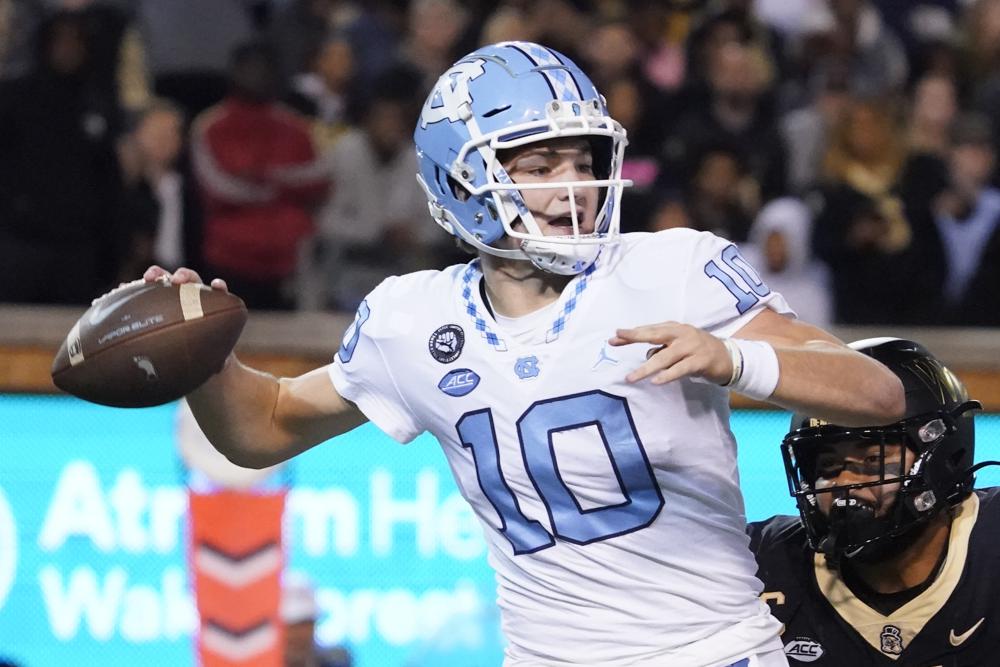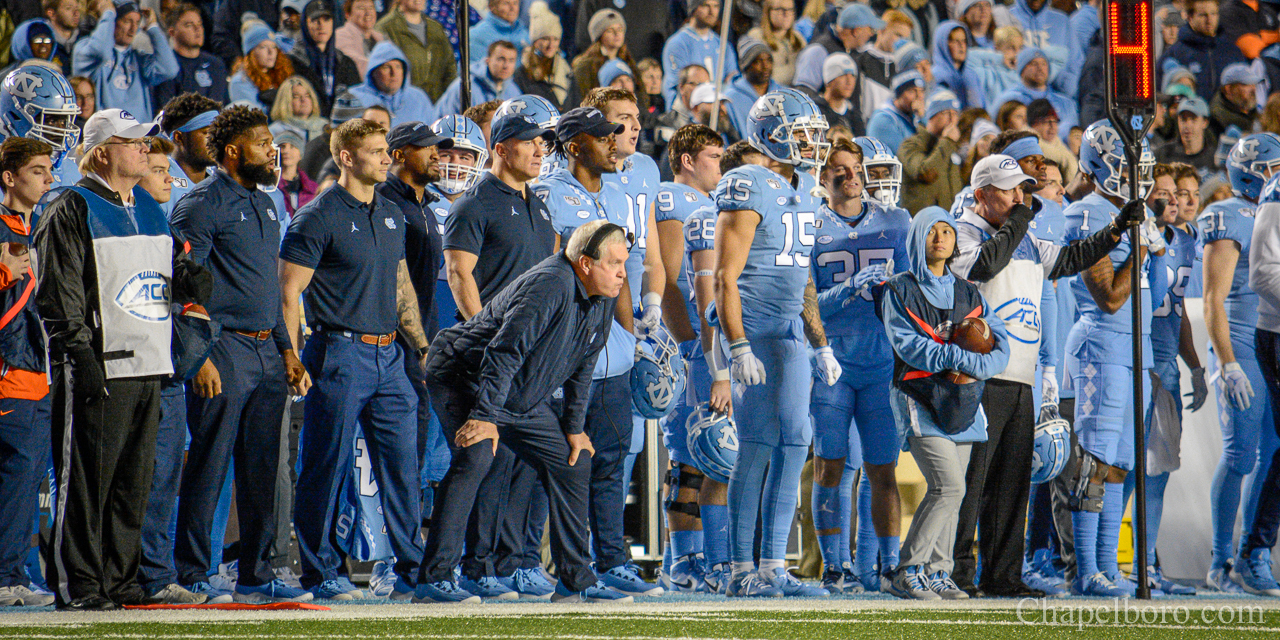A former college football player charged with violating North Carolina’s sports agent law has received probation in a deal with prosecutors.
Michael Wayne Johnson Jr., 28, was charged in 2013 with three felony counts of athlete-agent inducement from 2010. Under terms of the conditional discharge agreement Tuesday, those charges were reduced to misdemeanors and will be dismissed if he complies with all terms over the 12-month probationary period.
The charges included providing a place for agent Terry Watson to meet former Tar Heels player Greg Little to provide him $5,000 in an effort to entice Little to sign a representation contract, and twice providing a location for Watson to send $100 for Little.
Little — a free-agent receiver who has not played an NFL game since 2014 — appeared in the Orange County courtroom Tuesday for Johnson’s hearing but did not speak and declined comment afterward. Attorney William Young IV, who represents Johnson, explained Little’s appearance as a sign of “how important Michael is to him, and that’s forever, that’s for life.”
Johnson and Little were friends who played high school football together in Durham. Johnson was a quarterback at North Carolina Central at the time of the offenses in May and June of 2010, but was working for Rosenhaus Sports Representation when he was indicted in September 2013.
As part of his deal with prosecutors, Johnson also must stay out of legal trouble and complete 48 hours of community service.
Five people entered the week facing charges in the case centered on thousands of dollars in improper benefits provided to Little and fellow UNC football players Robert Quinn and Marvin Austin in 2010, though Johnson’s deal marked the third case to reach resolution in two days.
The law prohibits illegally luring collegiate athletes into contracts by providing them money, gifts or other items of value. It also seeks to regulate sports agent conduct by requiring them to register with the state. It has been enacted in at least 40 states along with the District of Columbia and the U.S. Virgin Islands, though its structure and penalties can vary from state to state. In North Carolina, it is a low-level felony that would typically lead to probation for anyone who doesn’t have a criminal record if they plead guilty or are convicted.
Johnson’s charges came after more than three years of investigation by the Secretary of State’s office, which launched its probe in summer 2010 after the NCAA had opened an investigation into the Tar Heels football program.
That case ultimately spawned the school’s ongoing multi-year academic scandal, which has UNC currently facing five top-level NCAA charges that include lack of institutional control.
Watson, from Marietta, Georgia, pleaded guilty Monday to 13 counts of inducement for providing roughly $24,000 in cash and travel accommodations to the three players. His plea deal included Watson being sentenced to 30 months of probation and a $5,000 fine, while a felony obstruction of justice charge for not providing records sought by authorities was dismissed.
Two cases are still pending, with the next court appearances for Willie James Barley Jr. and Christopher Hawkins scheduled for the week of May 15.
Barley, 33, was indicted on four counts of inducement and described on a 2013 arrest order as Watson’s employee from North Chesterfield, Virginia. He was charged with providing more than $1,500 in benefits to Quinn for a trip to Miami.
Hawkins, 34, a former UNC and Marshall football player arrested on four charges in 2015. That included two counts of inducement for providing Quinn with $13,700 and helping him sell game-used equipment for another $1,700 in 2010.
(AP Photo/Gerry Broome)






